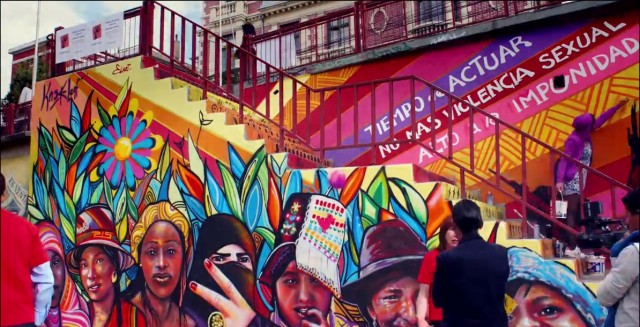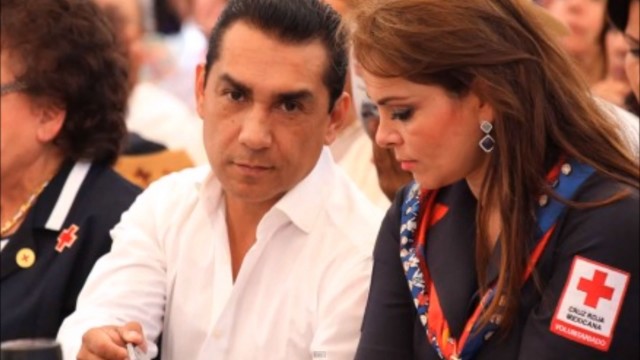
Andes, Blog, Bolivia, Latin America: Week in Review
Bolivian Official Decries Pervasive Violence Against Women
November 4, 2014 By Staff
Top Story — The Bolivian ombudsman decried a spike in sexual violence against young girls in the country, following the rape and killing of a four-year-old in Palos Blancos, a town northeast of the capital of La Paz.
The rape-slaying follows two near-identical crimes against young Bolivian girls in the last two weeks, all of which point to a broader trend of violence against women in the country.
The ombudsman, Rolando Villena, spoke out against the “complacency” of local and national forces in addressing the epidemic of violence against women. The ombudsman’s office claims that, among the population of underage girls, 34 percent have suffered sexual assault.
A 2013 report by the Pan-American Health Organization determined that Bolivia has among the highest levels of violence against women in Latin America. The study, done in conjunction with the Centers for Disease Control and Prevention, goes on to say that over 50 percent of Bolivian women reported having ever been a victim of sexual violence.
Bolivia’s culture of violence against women played a major role in October’s presidential elections. The campaign “machistas off the ballot” swept through the political debate, and succeeded in blocking the political aspirations of two candidates, who were viewed as blaming women for their own victimization.
A law created in 2013 provided funding for domestic violence shelters, created a special sex crimes task force and prescribed harsher punishments for crimes against women — including making femicide a crime punishable by 30 years in prison.
President Evo Morales admitted, however, that the law alone wouldn’t be enough to end gender violence in Bolivia. According to Bolivia’s Center for the Information and Development of Women, 157 women have been killed in the country between January and September of 2014.
Headlines from the Western Hemisphere
North America
- As the search for Mexico’s 43 missing students continues to draw attention to organized crime’s influence on politics in the country, President Enrique Peña Nieto’s previously lauded administration faces increasing criticism.
- An article by NACLA examines how current U.S. immigration policies dismantle and jeopardize immigrant families by providing deportation relief to children while their parents are still subject to deportation.
- A consortium of Chinese and Mexican firms won the contract to build a new high-speed railway that will connect Mexico City to Queretaro, an industrial center, and is expected to serve 27,000 passengers daily.
Caribbean
- An editorial in The New York Times has urged President Barack Obama to swap three convicted Cuban spies, who have already served 16 years in federal prison, for Alan Gross, an American government subcontractor currently in prison in Cuba.
- The death of 11 infants over the course of three days in a Dominican hospital in early October has drawn attention to the bad quality of the country’s medical institutions and health care system, especially for the poor.
- Cuba’s foreign commerce minister announced 246 potential business projects in the country, as it aims to attract over $8 billion in foreign investment to revitalize the struggling and cash-starved economy.
Central America
- An article in The Huffington Post examines why Nicaragua’s proposed canal may not be the economic “panacea” its proponents claim it will be, given the severe environmental and social damage it may cause.
- The director of Costa Rica’s Judicial Investigation Police is the latest law enforcement agent under investigation regarding alleged spying on Real Madrid goalkeeper Keylor Navas.
Andes
- The lawyer of Dutch killer Joran van der Sloot — convicted in the murder of a Peruvian business student and also the leading suspect in the 2005 disappearance of U.S. teenager Natalee Holloway — claims his client was repeatedly stabbed by fellow inmates in the notoriously tough Challapalca prison in the Puno province of Peru.
- A piece in the Los Angeles Times examines the declining numbers of the culturally and ecologically significant condor bird in Colombia.
- Venezuelan President Nicolás Maduro has accepted a proposal to increase the country’s minimum wage by 15 percent in December, a measure aimed to protect workers against soaring inflation.
Southern Cone
- A day after Argentine President Cristina Fernández checked herself into a Buenos Aires hospital with a fever, doctors reported on Monday that she has inflammation of the sigmoid colon, but is stable and is undergoing antibiotic treatment.
- Argentina has banned multinational consumer goods giant Proctor & Gamble from doing business in the country, accusing the company of tax fraud.
- Nancy Scola at the Washington Post looks at the likely long-term impact of Brazil’s decision to build a fiber-optic cable to Portugal without the involvement of any U.S. firms, a consequence of the blowback over revelations of NSA spying on Brazilian leaders.
Image: YouTube





